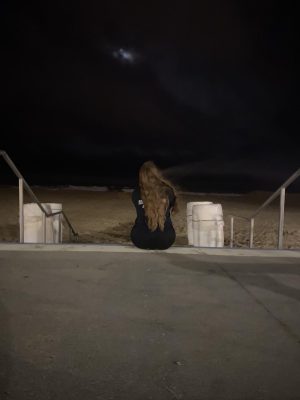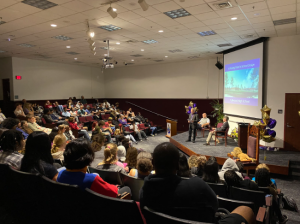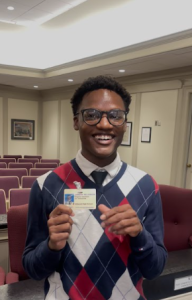My body, my choice: Women should have access to abortion
December 18, 2019
Access to abortion and other reproductive health services is a right every woman should be able to have. Denying a woman’s right to control her own body is like denying her equality. Putting too many restrictions forward would prevent women from being able to make choices about their own bodies.
Giving women the right to choose would reduce deaths caused by unsafe, illegal abortions.
According to Daniel R. Mishell, Chair of the Department of Obstetrics and Gynecology at the Keck School of Medicine, illegal abortion causes women to use unsafe terminating materials like coat hangers, knitting needles, and radiator flush. According to the World Health Organization, unsafe abortions cause about 68,000 deaths a year worldwide.
By protecting women’s access to abortion, the United States protects the lives of women.
Denying women access to abortion affects their mental health and can result in higher risks of anxiety and depression.
According to the American Psychological Association, women who are denied access to abortion have lower self esteem and higher anxiety levels than women who were allowed to have abortions.
Allowing a woman to make her own reproductive choices promotes a her right and ability to support herself.
Women who are denied access to abortion, on the other hand, are more likely to live under the poverty line and suffer from unemployment.
A University of California at San Francisco study found that women who are denied this access are three times more likely to be under the poverty line than women able to have abortions. They are more likely to become unemployed and won’t have the money that they need in order to support themselves and the child that they were forced to have.
Others may say that allowing abortion conflicts with the unalienable right to life given by the Founding Fathers. The argument for this claim is that abortion takes away “life, liberty, and the pursuit of happiness” from the unborn child. But if the child is unborn, how does that apply?
Justice Blackmun, in the Roe v. Wade case, said that “the word ‘person,’ as used in the Fourteenth Amendment, does not include the unborn.” Denying the right to abortion conflicts with the liberties in the 14th amendment.
In the Roe v. Wade case, Texas requested to ban abortion; this request was turned down by the Supreme Court, which legalized the procedure. Even the the Supreme Court recognized that the right to abortion is a fundamental liberty, protected by the 14th amendment.
Putting restrictions on abortion or denying it as a whole could result in more injuries, poverty, and mental health issues for women. Women who are forced to go through with an unwanted pregnancy are more likely to suffer through unemployment and mental health issues, like anxiety and depression. Abortion is a fundamental right. Everyone should be given the right to make their own moral choices and control their own body.
My Body. My Choice.
Head, Tom. “Fantastically Thought-Provoking Pro-Choice Quotes.” ThoughtCo, ThoughtCo, 18 Sept. 2019, https://www.thoughtco.com/top-pro-choice-quotes-721110.
“Pros & Cons – ProCon.org.” Abortion, https://abortion.procon.org/.
“Article.” ANSIRH, https://www.ansirh.org/news/socioeconomic-outcomes-women-who-receive-and-women-who-are-denied-wanted-abortions.
The Editors of Encyclopaedia Britannica. “Roe v. Wade.” Encyclopædia Britannica, Encyclopædia Britannica, Inc., 13 June 2019, https://www.britannica.com/event/Roe-v-Wade.
Roden, Gregory J. “Unborn Children as Constitutional Persons.” Issues in Law & Medicine, U.S. National Library of Medicine, 2010, https://www.ncbi.nlm.nih.gov/pubmed/20443281.
EDITOR’S NOTE: The Roaring Gazette’s Opinion section provides a space for Tallwood students to have a voice in a variety of local, national, and international discussions. The views expressed in these articles are the students’ own.










